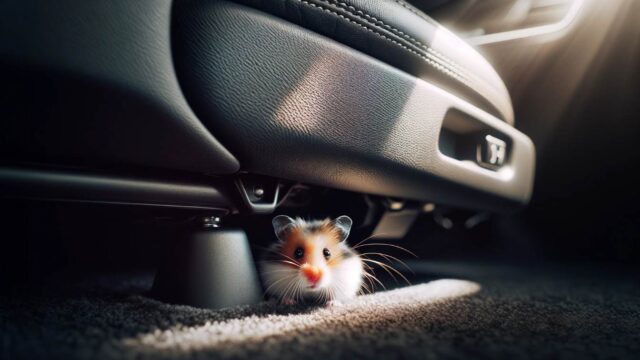Can Hamsters Drink Cold Water? Everything You Need to Know
Hamsters drinking cold water is a common question for pet owners. Getting your hamster’s water intake right is crucial for keeping them healthy and happy. This article will cover everything you need to know about hamsters and cold water.
Key Takeaways:
- Can hamsters drink cold water? Room temperature or warm water is best for a hamster’s health. Very cold water is not recommended, as it can lower their body temperature.
- Do not give hamsters icy cold tap water. Let tap water sit out and come to room temperature before providing it.
- Ideal drinking water temperature for hamsters is 65-75°F (18-24°C). This will not chill their body or cause digestive issues.
- Warm water around 70-75°F (21-24°C) can help prevent hypothermia for hamsters in cold environments. Just ensure it’s not hot.
- Signs of a too cold hamster include shivering, lethargy, sleeping curled up, and feeling cold. Raise the ambient temperature and provide warm water.
- Very cold water can cause hypothermia, dehydration, diarrhea, respiratory issues, or torpor/hibernation in hamsters.
Should You Give Your Hamster Cold Tap Water?
Giving your hamster cold tap water fresh from the faucet is not recommended. Tap water straight from the tap is often very cold, sometimes nearly icy depending on your climate. This frigid temperature can be a major shock to a hamster’s system.
Hamsters are originally desert animals and are not adapted to handle very cold water well. The sudden cold affects their digestion and body temperature regulation. Room temperature tap water is not as much of a problem, but there are still some potential issues with tap water that warrant consideration.
Tap water tends to have higher levels of contaminants like chlorine, fluoride, dissolved minerals, and sometimes bacteria. The cold temperature of tap water exacerbates these risks. These substances in icy cold tap water can definitely upset a hamster’s digestive system, especially chlorine. Excess minerals may also accumulate in their body over time.
Heating tap water helps drive off chlorine, but may concentrate other dissolved minerals and contaminants. Additionally, hot tap water comes with a scalding risk.
The best option is to give your hamster filtered or bottled spring water. Let the water come completely to room temperature before putting it in your hamster’s bottle or bowl. This will provide fresh, pure water that will properly hydrate your pet without digestive issues.
What Temperature Water Should Hamsters Drink?
Hamsters do best health-wise drinking water that is close to room temperature or slightly warm. The ideal temperature range for a hamster’s drinking water is around 65-75°F (18-24°C). Water in this temperature range will not negatively impact your hamster’s body temperature or health.
Room temperature water will properly support your hamster’s hydration needs without chilling their body. Hamsters are small animals that can lose body heat rapidly. Drinking very cold water draws heat away from their body, causing their temperature to drop. A hamster’s normal body temperature is quite warm, around 99°F (37°C). Their metabolism depends on maintaining this temperature.
Slightly warm water around 70-75°F (21-24°C) can be beneficial in keeping hamsters hydrated in colder environments. Just ensure the water is not hot to the touch to avoid scalding. Warm water from the tap or other sources may be too hot initially. Allow it to sit out and cool down before offering it.
Room temperature water supports a hamster’s water intake needs without negatively impacting their body temperature. This should be your goal with your hamster’s drinking water. Keep an eye on the thermometer and make adjustments to keep their water in the ideal 65-75°F (18-24°C) range.
Can Hamsters Drink Bottled Water?
Yes, hamsters can absolutely drink bottled water as long as it is not icy cold. Room temperature bottled spring or purified water is an excellent choice over tap water for hamsters. Bottled waters will not contain contaminants like chlorine, fluoride, or heavy minerals often found in tap water.
The best bottled waters for hamsters are:
- Spring water
- Purified water
- Distilled water
- Mineral water
Avoid “drinking waters” with added flavors, sugars, vitamins, or supplements. The additives are not necessary for hamsters and may cause issues.
Let any bottled water come completely to room temperature before giving it to your hamster. To gently warm refrigerated bottled water, place the sealed bottle under some warm running tap water for a few minutes. This will slowly bring the temperature up into the ideal range for your hamster to drink.
Bottled waters make a very convenient and safe way to provide great drinking water for hamsters. Just be conscious of the temperature and let refrigerated bottles warm up before serving.
Should You Give a Hamster Warm Water?
Giving your hamster warm water in the 70-75°F (21-24°C) range can be beneficial, especially in colder environments. Just ensure the water is not hot to the touch. Water that feels warm or hot to your hand is too hot for your hamster initially.

Tap water directly from a hot faucet or water warmed too quickly in the microwave or on the stove can be dangerously hot. The best way to provide nice warm drinking water for a hamster is:
- Start with filtered or bottled spring water
- Allow it to come to room temperature first
- Then place the hamster’s water bottle or bowl on a low heat source like a heating pad set to low.
This will gently raise the water temperature to the perfect warm range around 70-75°F (21-24°C).
Warm water in this temperature range can help prevent your hamster’s body temperature from dropping in a cold room. It supports good hydration while preventing chilling from drinking icy water. Monitoring the water temperature and making adjustments is key.
Dangers of Hamsters Drinking Very Cold Water
There are some potential health dangers of hamsters drinking water that is too cold:
- Hypothermia – Cold water can rapidly draw heat away from a hamster’s tiny body leading to a dangerously low temperature (hypothermia). Once hypothermia sets in, it can quickly become life-threatening for a small hamster.
- Dehydration – The shocking chill of extremely icy water may discourage the hamster from drinking enough, resulting in dehydration. Your hamster needs regular hydration to stay healthy.
- Digestive issues – Very cold water hitting the stomach may cause diarrhea, gastrointestinal cramps or upset in some hamsters. The cold can essentially shock their digestive system.
- Respiratory problems – Breathing in cold air while drinking freezing water may inflame or irritate a hamster’s delicate respiratory tract. This may allow bacterial or viral infections to take hold.
- Torpor or hibernation – Prolonged chilling from drinking only very cold water could potentially send a hamster into a torpor or full blown hibernation state. This will greatly slow their metabolism and heart rate.
While hamsters do naturally hibernate in the wild during winter, sending them into this state by offering only icy cold drinking water is unnecessary and potentially harmful. Keeping their environment warm and offering room temperature water will prevent torpor or hibernation.
Signs Your Hamster is Too Cold

Watch for these signs that your hamster may be getting overly chilled possibly from drinking cold water:
- Shivering or trembling
- Lethargy and lack of normal activity
- Fur constantly puffed up for insulation
- Sleeping all curled up in a ball excessively
- Not drinking enough water
- Feeling cold to the touch – their paws and nose in particular
If you observe any of these, first try adjusting their environment to be warmer and swap out their water for room temperature or warm water. If the symptoms do not resolve in 12-24 hours, take your hamster to the vet for evaluation. A chilled hamster needs quick treatment.
Final Thoughts
In my years of caring for hamsters, I’ve learned that the little things, like the temperature of their water, can make a big difference. I always recommend room temperature or slightly warm water for hydration. It’s a simple step, but it’s crucial for their comfort and health.
I’ve noticed that when I give my hamsters water that’s too cold, they tend to drink less. It’s understandable – nobody likes an uncomfortable shock when they’re just trying to quench their thirst. Plus, avoiding very cold water is important to prevent any risk of hypothermia, which is especially crucial for these small creatures.
Letting tap water sit out for a bit not only helps with the temperature but also reduces chlorine levels, which is better for their delicate systems. I’ve found that bottled or filtered water gives me peace of mind, knowing I’m avoiding potential contaminants common in tap water.
Remember, clean and fresh water isn’t just about hydration; it’s about providing a safe and comfortable environment for your hamster. By following these simple steps and keeping a close eye on their water intake, you’re contributing to their overall well-being. It’s a small effort on our part, but it means the world to them.
FAQs
How much water should a hamster drink per day?
Hamsters typically drink 5-10 mL of water per day. Increase this to 10-15 mL for lactating female hamsters or very warm climates. Track their normal intake.
What temperature water do hamsters prefer?
Room temperature water between 65-75°F is ideal for hamsters. This gives proper hydration without chilling their body or digestive tract.
Can hamsters drink bottled water?
Yes, bottled spring or purified water makes a very safe drinking source for hamsters as it will not contain tap water contaminants. Just bring it to room temperature before offering it.
Do hamsters like warm or cold water?
Hamsters strongly prefer warm water around 70°F over cold water. Room temperature or slightly warm water is best as cold water carries health risks and can lower their body temperature.


















